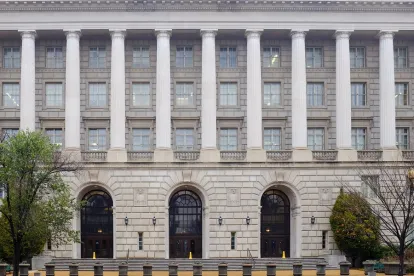IRS Will Obtain Identifying Information Regarding Clients Who Conducted Any Transaction Equal to $20,000 or More
Last week, a federal magistrate judge in the Northern District of California granted in part and denied in part a motion by the IRS to enforce a “John Doe” summons served on Coinbase, Inc., which operates a virtual currency wallet and exchange business headquartered in San Francisco. As we have blogged, the court granted last year the IRS’s application to serve the summons on Coinbase, which then resisted and moved to quash. The recent ruling paves the way for potential criminal or civil tax investigations involving Coinbase customers, as well as potential money laundering investigations. The ruling also indicates that the IRS might be able to seek more information from Coinbase about specific individuals as its investigation progresses.
Needless to say, the semi- or pseudo-anonymity offered by virtual currency – traits which historically have made virtual currency attractive to some of its users – are the same traits which have made the IRS and other law enforcement agencies and regulators intensely interested in the use of virtual currency. Although the use of virtual currency generally may cloak the user and create practical problems for investigators, the Coinbase action demonstrates that virtual currency is not truly anonymous in the face of a focused law enforcement inquiry.
To provide some context to the Coinbase action, we will first summarize the general approach taken by the IRS regarding the taxability of virtual currency, which the IRS treats as “property” – an approach which can create practical and legal complexities in ascertaining taxable income.
Taxability of Virtual Currency
Virtual currency, very generally, is a digital unit of exchange that is not backed by a government. It may be used to pay for goods or services, or held for investment. For U.S. federal tax purposes, the IRS takes the position that virtual currency is treated as property rather than currency. A taxpayer who receives virtual currency as payment for goods or services must include the fair market value of the currency (measured in U.S. dollars) when computing his gross income. The basis of virtual currency that a taxpayer receives as payment for goods or services is the fair market value of the virtual currency (in U.S. dollars) as of the date of receipt. Additionally, a taxpayer will have to recognize gain or loss upon an exchange of virtual currency for other property if the fair market of property received in exchange for virtual currency does not equal the taxpayer’s adjusted basis of the virtual currency.
Determining a taxpayer’s gross income, gain or loss, and basis with regard to a virtual currency transaction also requires the taxpayer to determine the fair market value of virtual currency in U.S. dollars as of the date of payment or receipt. If a virtual currency is listed on exchange, such as Coinbase, and the exchange rate is established by market supply and demand, the fair market value of the virtual currency is determined by converting the virtual currency into U.S. dollars (or into another “real” or “fiat” currency which in turn can be converted into U.S. dollars) at the exchange rate, in a reasonable manner that is consistently applied. For other types of virtual currency, it is unclear how to measure fair market value and whether or not the value of the goods or services given in exchange for the currency can establish its value. As with all property, the character of the gain or loss will generally depend on whether the virtual currency is a capital asset in the hands of the taxpayer. It is unclear under what circumstances virtual currency might be held as a capital asset versus an ordinary asset or as inventory.
Application of the above principles in real-world transactions can be a daunting practical challenge, particularly when many small transactions are performed overtime. Nonetheless, what is clear is that virtual currency transactions can give rise to income which must be reported on the user’s tax return. This very basic principle is what led to the Coinbase summons.
The Summons Enforcement
The summons initially served by the IRS on Coinbase (the government has notalleged that Coinbase has violated any law) sought “information regarding United States persons who at any time during the period January 1, 2013 through December 31, 2015 conducted transactions in a convertible virtual currency . . .” The initial summons requested nine categories of documents regarding the identities and activities of Coinbase’s customers; in the memorandum and declarationsupporting the petition to serve the summons, the IRS asserted that virtual currency represents not only a potential vehicle for tax evasion, but also a possible conduit for money laundering.
In the face of opposition by Coinbase and due to an apparent acknowledgement that most Coinbase users conduct numerous, low-value transactions, the IRS later narrowed its initial request and filed a “Notice of Narrowed Summons Request For Enforcement” (“Narrowed Summons”). As modified, the IRS sought information regarding accounts “with at least the equivalent of $20,000 in any one transaction type . . . . in any one year during the 2013-2015 period.” The Narrowed Summons excluded a user “(a) who only bought and held bitcoin during the 2013-15 period; or (b) for which Coinbase filed Forms 1099-K during the 2013-15 period.”
According to Coinbase, the Narrowed Summons still was overly broad because it requested information regarding approximately 8.9 million transactions and over 14,000 account holders. Further, and among other arguments, Coinbase challenged the legitimacy of the investigative purpose of the Narrowed Summons. However, the court noted that the burden of the IRS was “slight” under the governing Supreme Court case, United States v. Powell, and that the IRS could satisfy its burden of “good faith” through a declaration from the investigative agent that that the Powell requirements had been met, i.e., that the summons “(1) is issued for a legitimate purpose; (2) seeks information relevant to that purpose; (3) seeks information that is not already in the IRS’s possession; and (4) satisfies all of the administrative steps set forth in the Internal Revenue Code.” Applying this lenient standard, the court found that the IRS had demonstrated a legitimate investigative purpose:
[T]he investigative purpose is not a bare conclusion: it is premised upon [an IRS] declaration that Coinbase is the largest bitcoin exchange company in the United States with 5.9 million users yet only 800 to 900 taxpayers have reported property transactions related to bitcoin in each of the relevant years.
Moreover, Coinbase itself admits that the Narrowed Summons requests information regarding 8.9 million Coinbase transactions and 14,355 Coinbase account holders. That only 800 to 900 taxpayers reported gains related to bitcoin in each of the relevant years and that more than 14,000 Coinbase users have either bought, sold, sent or received at least $20,000 worth of bitcoin in a given year suggests that many Coinbase users may not be reporting their bitcoin gains. The IRS has a legitimate interest in investigating these taxpayers.
The Court therefore granted the petition in part and ordered disclosure of the following for each relevant account:
-
The customer’s (1) taxpayer ID number, (2) name, (3) date of birth, and (4) address; and
-
Records of account activity including transaction logs or other records identifying the date, amount, and type of transaction (purchase/sale/exchange), the post transaction balance, and the names of counterparties to the transaction.
However, the court denied the IRS’s request – at least for now – for a variety of other records as not relevant or necessary at this state, including the following:
-
Account opening records, copies of passports or driver’s licenses, all wallet addresses, and all public keys for all accounts/wallets/vaults;
-
Requests or instructions to send or receive bitcoin and information identifying the users of such accounts where counterparties transact through their own Coinbase accounts/wallets/vaults and their contact information;
-
Records of Know-Your-Customer diligence;
-
Agreements or instructions granting a third-party access, control, or transaction approval authority; and
-
Correspondence between Coinbase and the user or any third party with access to the account/wallet/vault pertaining to the account/wallet/vault opening, closing, or transaction activity.
The court explained its partial denial as follows, although it observed that the IRS might be entitled to at least some of the above records pertaining to certain individuals later in the investigation:
The Government claims to need these records to verify an account holder’s identity and determine if the holder used others to make transactions on the account holder’s behalf. However, at this stage, where the Government is seeking records on over 10,000 account holders, these requests seek information than is “broader than necessary.” [citation omitted]. The first question for the IRS is whether an account holder had a taxable gain. If the account holder did not, then correspondence between Coinbase and a user is not even potentially relevant. Similarly, while the Government needs an account holder’s name, date of birth, taxpayer identification and address to determine if a taxable gain was reported, it only needs additional identity information such as copies of passports and driver’ licenses or “Know Your Customer” due diligence if there is potentially a taxable gain and if there is some doubt as to the taxpayer’s identity. If there is not, these additional records will not shed any light on a legitimate investigation.
These records may become necessary for a specific account holder once the IRS reviews the relevant records; but for many or even most of the account holders they may never be relevant and thus the Court will not order their production.
As the above reflects, the IRS will have the benefit of time to review the records it receives and select targets for further scrutiny. As we previously observed, the Coinbase summons highlights the fact that virtual currency is not truly anonymous, and that those who use it to hide income or illicit activity should not assume otherwise. The U.S. government presumably will use the powerful tool of a John Doe summons against other virtual currency exchanges, just as it used this tool repeatedly against banks in the decade-long enforcement campaign against undisclosed foreign bank accounts held by U.S. taxpayers, with long-term and substantial results.




 />i
/>i

